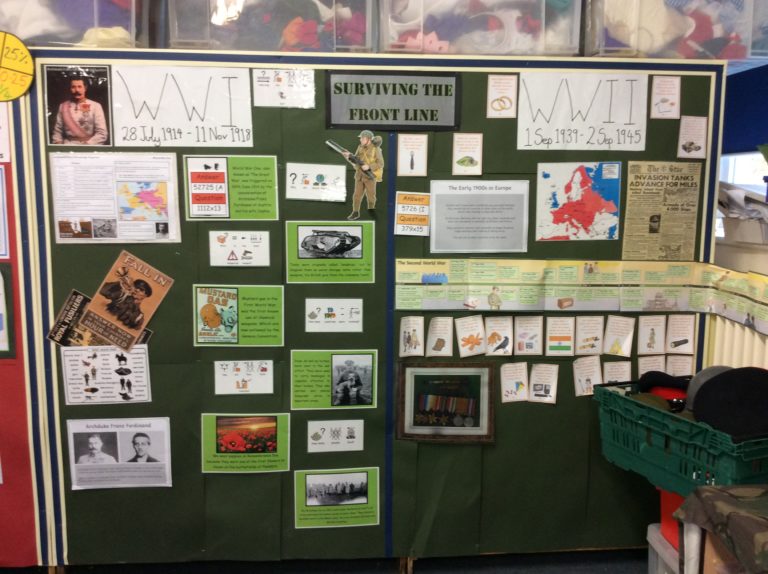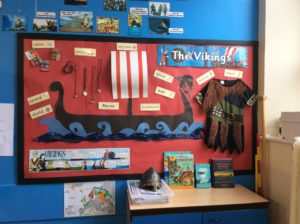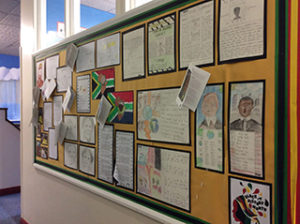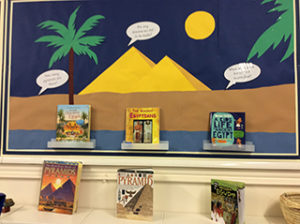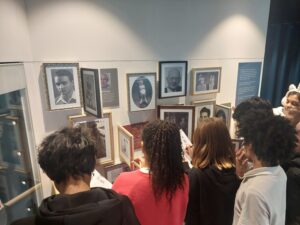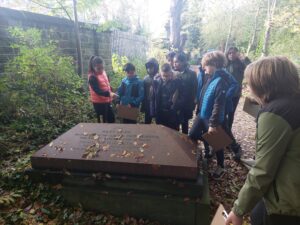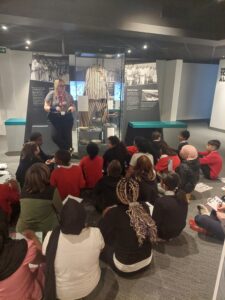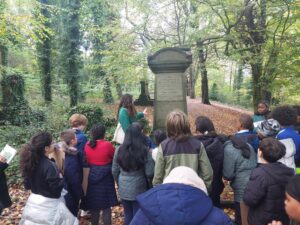HISTORY
INTENT - OUR VISION FOR HISTORY
At Porter Croft Academy we believe that history gives children knowledge and understanding of Britain’s past and that of the wider world. Through the teaching of history, we endeavour to teach children to understand the complexity of people’s lives, the process of change, the diversity of societies and relationships between different groups, as well as their own identity and the challenges of their time. We believe that teaching history in this way is important in broadening children’s horizons, challenging preconceived ideas and developing life skills. In addition to this, we recognise the important role that history plays in preparing our children with the skills to understand change, societal developments; as well as a context in which to understand themselves and others.
The history curriculum at Porter Croft makes full use of resources within the local area. We intend for our children to have real life experiences and learn about history in an active and creative way and therefore visitors and trips form a fundamental part of our curriculum. Links to geography and other subject areas are also explored. Topics are informed by the national curriculum and are sensitive to children’s interests, as well as the context of the local area.
Our curriculum aims to:
- Increase and develop their historical skills, concepts, knowledge and attitudes.
- Increase their understanding of the present in the context of the past.
- Develop and use their skills in enquiry, analysis, evaluation, and argument.
- Develop their interest in the past, arousing their curiosity and motivation to learn.
- Develop a sense of identity through learning about the past.
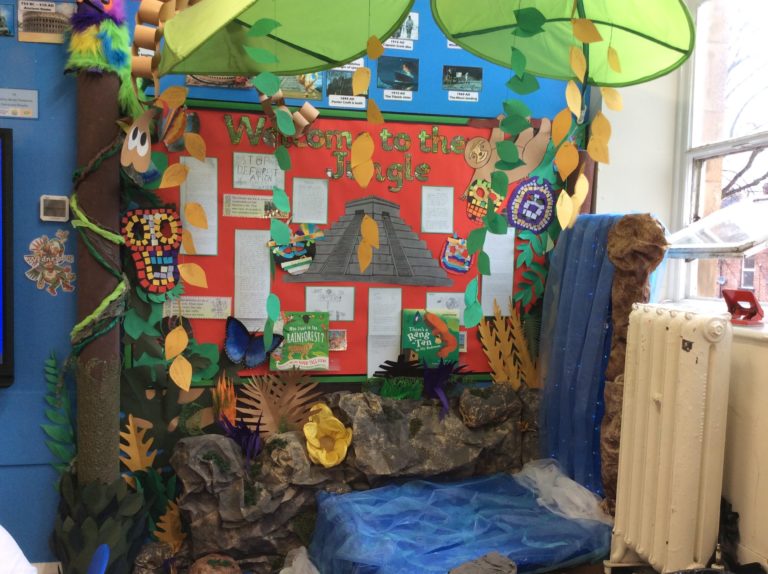
WHY HISTORY IS IMPORTANT?
Through our history curriculum, we strive to inspire pupils’ curiosity about the past. History provides identity and improves our decision making and judgment. History also provides models of good and responsible citizenship whilst teaching us how to learn from the mistakes or challenges of others. It also helps us understand change and developments in society. Most importantly, it provides us a context from which to understand ourselves and others.
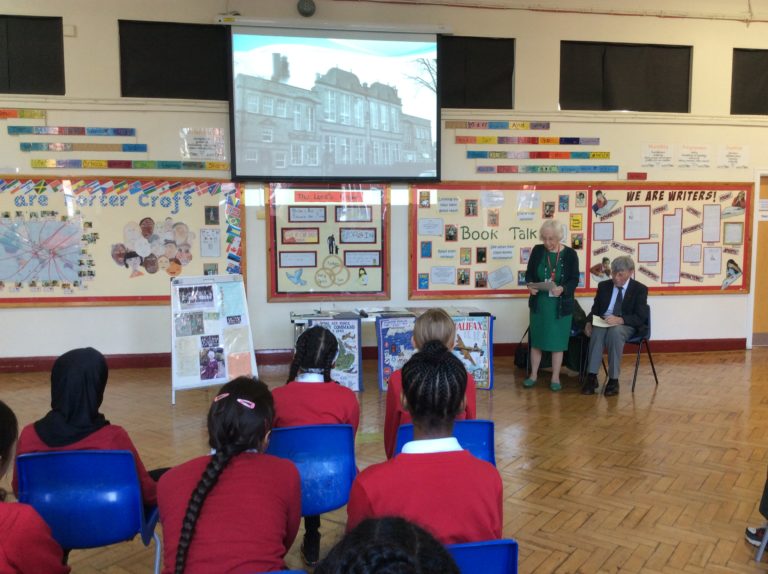
IMPLEMENTATION – HISTORY PLANNING & SEQUENCING OF KNOWLEDGE & SKILLS
History is taught through topics throughout the year. The key knowledge and skills that children acquire and develop throughout each topic have been mapped to ensure progression between year groups and throughout the school. At the beginning of each new history topic, teachers refer to past learning and classroom timelines to develop children’s understanding of chronology. Retrieval grids, quizzes and knowledge organisers are used to check existing knowledge at the beginning of each topic and this process informs a programme of study that is responsive to children’s interests. Key knowledge is reviewed by the children, checked and consolidated by the teacher through using a knowledge harvest. By the end of year 6, children will have a chronological understanding of British history from the Stone Age to the present day. They are able to draw comparisons and make connections between different time periods and their own lives. Interlinked with this are studies of world history, such as the ancient civilisation of China, the Indus Valley and the Egyptians.
Cross curricular outcomes in history are specifically planned for and these are indicated on the school’s progression mapping. Planning is informed by and aligned with the National Curriculum. In addition, staff have access to the Keystage Histories planning documents and resources. The history curriculum is designed to ensure appropriate diversity in the significant figures that children learn about. Teachers’ cater for the varying needs of all learners, adapting activities where necessary and as appropriate, to ensure an appropriate level of challenge or support. Outcomes of work are regularly monitored to ensure that they reflect a sound understanding of the key identified knowledge.
Our history curriculum support pupils to children increase their substantive knowledge. This is the subject knowledge and explicit vocabulary used about the past. This is learning about people, places, events and changes. We have substantive concepts which are built upon throughout a child’s learning journey in history which we define as historical thread.
Empire | Exploration | Legacy | Technological/ innovation advancements | Invasion and settlement | Monarchy and rule
| Cultural changes/societal changes |
In the study of the past, our children also increase their disciplinary knowledge; this is the use of that knowledge and how our children construct understanding through historical claims, arguments and accounts. We call it 'working historically' and may involve significance, evidence, continuity and change, cause and consequence, historical perspective and contextual interpretation.
As a school we are developing our historical pedagogy so that we can capture children’s application of historical disciplinary skills.
To find out how History is planned & sequenced in order that our children can progress through the building blocks for learning, please click on the links below
Under review Policy 2023
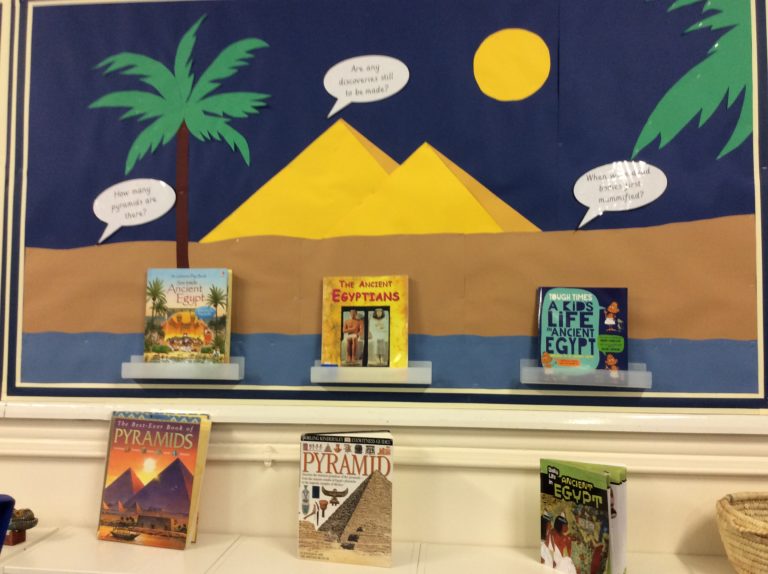
NATIONAL CURRICULUM PURPOSE OF STUDY
IMPACT OF OUR HISTORY CURRICULUM
Outcomes in history and English books evidence a broad and balanced history curriculum and demonstrate the children’s acquisition of identified key knowledge. Through this study, pupils ask perceptive questions, think critically, weigh evidence, sift arguments, and develop perspective and judgement. Regular heritage projects provide further relevant and contextual learning, engaging member of the community in children’s learning and providing positive role models from the community for children to learn from.
Evidence from book scrutiny, book looks, working walls, lesson study, staff meetings, lesson observations, planning documents and half termly test is used to access children’s knowledge and grasp of History.
INCLUSION
All history lessons/activities are designed and planned to include all children through a range of approaches and through using adaptive teaching methods. Lessons are planned to facilitate the best possible outcome for all children within the class.
USEFUL HISTORY WEBSITES
